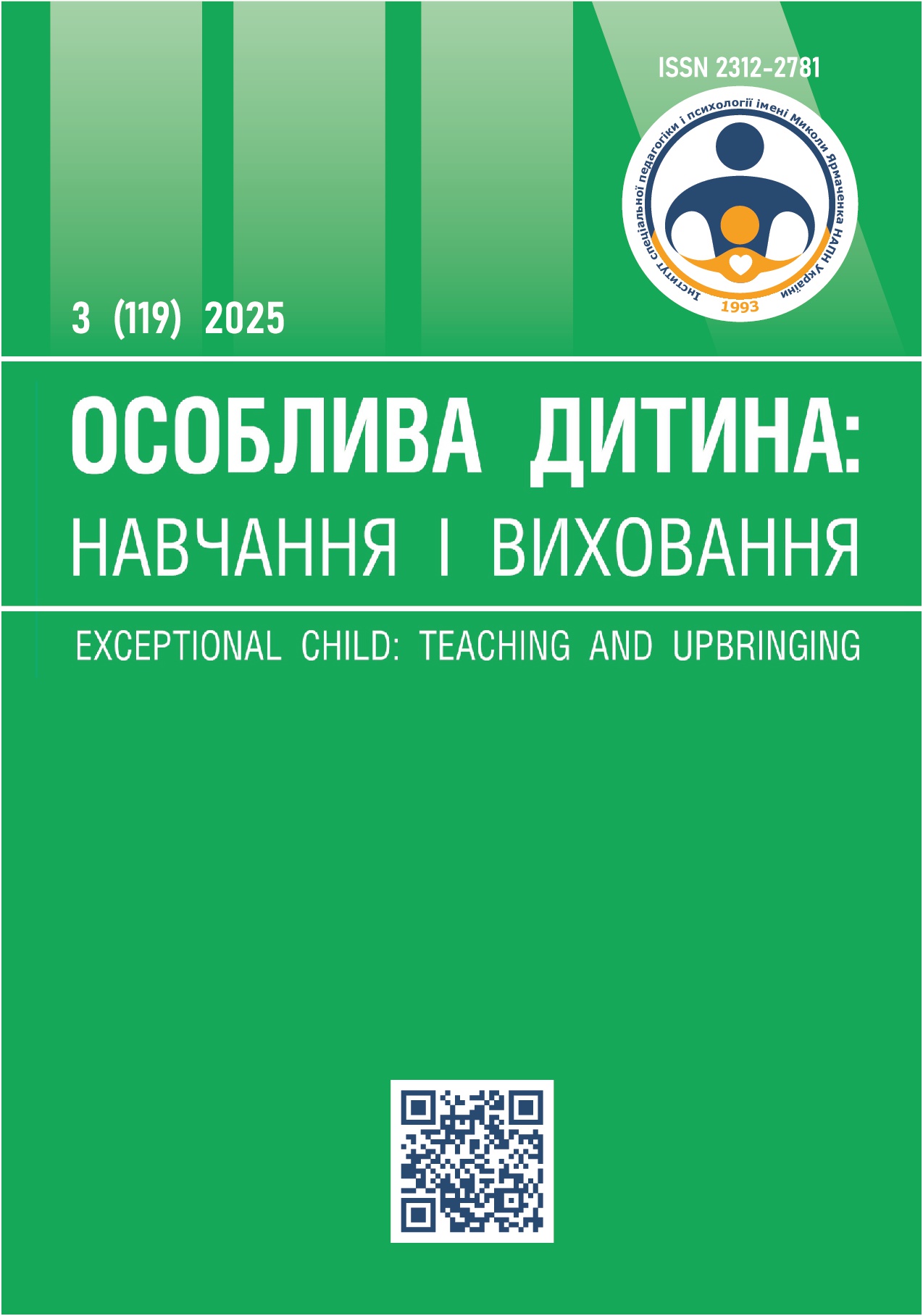FORMATION OF DIALOGICAL COMPETENCE IN CHILDREN WITH SEVERE SPEECH DISORDERS USING ONLINE LEARNING MEANS
Abstract
Purpose of the study. The article is devoted to the analysis of the possibilities of forming dialogic competence in children with severe speech disorders (SSD) using online learning. The main attention is focused on studying the effectiveness of methods, tools and pedagogical strategies used in a distance format, as well as on developing practical recommendations for improving correctional and developmental work.
Methods. The study used an analysis of scientific literature, content analysis of modern educational platforms, a comparative review of correctional programs and pedagogical practices, as well as a generalization method to determine the optimal approaches to organizing dialogic interaction online.
Results. It is shown that online education opens up new opportunities for the development of speech skills of children with SSD, but requires special adaptation of the content, methods and forms of work. A positive factor is the interactivity of digital tools that stimulate communication and create conditions for individualization of learning. At the same time, a number of barriers were identified - difficulty in maintaining attention, insufficient level of emotional involvement and the need for significant support from the teacher and parents.
Scientific novelty. For the first time, a comprehensive analysis of the use of online learning tools for the formation of dialogic competence in children with SLD was carried out, the strengths and weaknesses of this approach in inclusive education were identified. Practical significance. The results of the study can be used by speech therapists, teacher assistants, and teachers of inclusive classes to develop effective distance learning classes that will contribute to the development of communicative and social skills of students with special educational needs.
References
Особлива дитина: навчання і виховання. №3(119). 2025. с. 308-319


